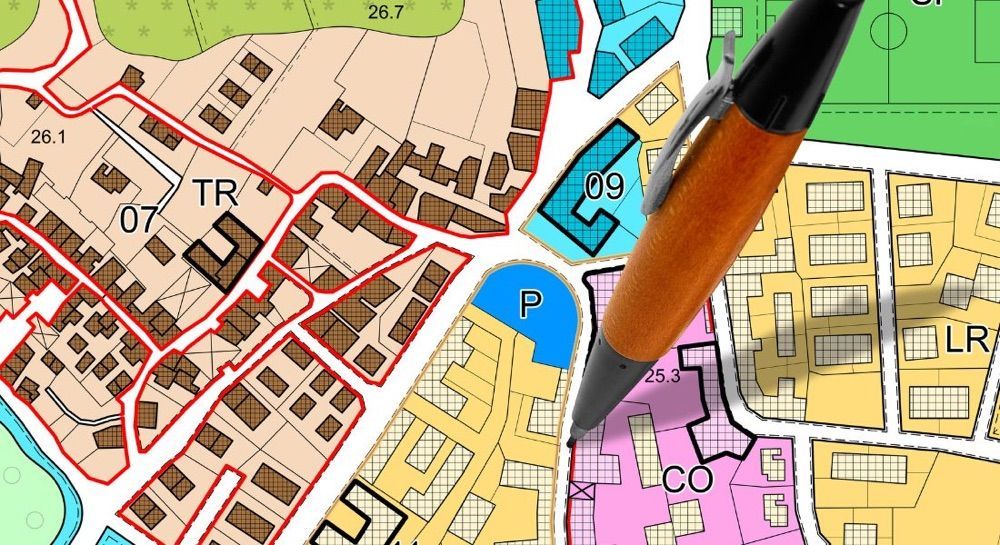Zoning and Land Use Regulations

Zoning and land use regulations govern land development and use, ensuring sustainable growth and harmony between residential, commercial, and industrial areas. Though sometimes complicated, these rules help maintain community aesthetics, safeguard public health, and manage resources efficiently, promoting balanced and organized planning.
The Zoning Attorneys at Bingaman Hess can provide legal counsel to resolve zoning issues.
Zoning Approvals
The zoning approval process typically begins with applying to the local planning department or zoning board. This application includes detailed site plans, proposed uses, and relevant surveys. The planning staff reviews the submission for compliance with existing zoning regulations and planning goals. They may issue public notices and schedule hearings to allow community members to voice their support or concerns.
During the public hearing, interested parties present their views, and the zoning board evaluates the project's impact on the community, considering factors like traffic, environmental effects, and local economy. The board then deliberates and votes to approve, deny, or request modifications to the proposal. If approved, the project moves to other permitting stages, such as building permits. Applicants can revise and resubmit their plans or appeal the decision if denied. Clear communication and comprehensive planning are essential for successful zoning approval.
Variances and Exceptions
A variance is a discretionary waiver granted by a zoning board allowing property owners to deviate from specific zoning regulations due to unique circumstances causing undue hardship. For example, a homeowner might request a setback variance to build closer to the property line if the lot's shape or terrain poses challenges. To obtain a variance, applicants must demonstrate that the strict enforcement of the zoning regulation would be impractical and that the variance will not harm the public interest or zoning objectives.
On the other hand, exceptions are pre-defined allowances within zoning ordinances for specific uses or buildings that would not ordinarily comply with the zoning code. Unlike variances, exceptions are anticipated by the zoning laws and typically require a more straightforward, less discretionary approval process. However, they still involve a review process to ensure compatibility with the surrounding area.
Understanding the nuances of variances and exceptions helps property owners navigate the complexities of zoning while ensuring structured community development.
Community Impact Assessments
Community impact assessments evaluate the potential effects of a proposed development or policy on the local community. These assessments consider various economic, social, environmental, and health impacts. The process involves gathering data, conducting analyses, and consulting with interested parties to determine how the project might alter community dynamics, resources, and quality of life.
The goal is to identify positive and negative consequences, ensuring informed decisions promoting sustainable and impartial development. Practical community impact assessments help mitigate adverse effects while maximizing benefits for everyone involved.
Choose the Right Zoning Law Attorney
Are you facing a zoning appeal or challenging a citation? The municipal attorneys at Bingaman Hess are ready to assist. With extensive experience in complex municipal and zoning laws, our team offers a comprehensive range of legal services. Whether you need ongoing legal counsel or help with a specific issue, Bingaman Hess has you covered.
Call our municipal attorneys today at 610.374.8377 or find us online.










